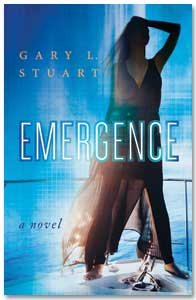This topic is deep into the writing psyche. Every writer knows the difference between fiction and nonfiction. It’s truth, right? Most writers differentiate between truth and lies. But even so, some writers feel no pressure, much less value in insisting that truth be an “actual” fact in what they write. If someone else said something was true, too many writers accept that as “actual” truth, and if not, who cares? It’s still “reportable” as long as it is sourced, right?
Readers of this blog might recall other forays into the word, truth. On September 2, 2018, I blogged under the title, “What Does Truth Isn’t Truth Mean?” On November 8, 2018, I blogged, “Is Memoir Writing Truthful or Just Therapy?” On November 23, 2018, I blogged, “Must We Write Only Truthful Resumes?” On September 11, 2019, I blogged about, “Ethics of Writing Lies.” On July 7, 2020, I blogged about “Writing Novels About True Events.” On December 2, 2020, I write about the “Ethics of Writing True Crime.” On February 25, 2021, I wrote about “The Liar’s Paradox.”
Over the years I’ve explored truth in the context of politics, gun violence, war, social media, morality, money, pseudonymity, law, wokeness, conspiracy theories, death, insurrection, sedition, treason, POTUS, whistleblowing, elections, fake news, fake writers, cancel culture, pandemics, decency, stocks, oxymorons, Covid-19, science fiction, dystopian societies, obituaries, memoirs, jokes, storytelling, and history. Today’s topic covers the gamut of every topic because history is what happened moments ago, and truth about everything is evasive.
From time immemorial history has been written by winners. The history of losing is also written by winners. The facts of how something is won, acquired, lost, found, or made up out of whole cloth is written by the winning side, just as the falsity of how they won is ignored by history readers. Everyone who reads “history” and everyone who writes about “history,” especially those who write about historical truth, would do well to keep a copy of Yuval Noah Harari’s magnificent tome aptly titled, “Sapiens—A Brief History of Humankind.”[1]
Professor Harari reminds readers, researchers, and writers what we mean by the word history. “The immense diversity of imagined realities that Sapiens invented, and the resulting diversity of our behavior patterns are the main component of what we now call culture. Once cultures appeared, they never ceased to change and develop. These unstoppable alterations are what we call history.
Essential truth is a creature of good writing, even when writing fiction. Betsy Grazianai Fasbinder said, “As a reader and writer of both fiction and memoir, I find that a common denominator for what makes a story good and one that I want to read is what I call “essential truth.” Essential truth is when the story’s plot, emotional current, characters, and dialogue convey authenticity and “ring true.”[2]
To complicate the discussion, there is also the overarching reality of reporters, journalists, op-ed writers, media giants, media hacks, and people whose entire lives are built on lies. We’ve always had writers who, in good faith, wrote intricate stories interplaying fact, fantasy, truth, lies, art, and politics.
Stephen King said, “Fiction is a lie, and good fiction is the truth inside the lie.”[3]
Mark Twain said, “Truth is stranger than fiction, but it is because fiction is obligated to stick to possibilities; Truth isn’t.”[4]
Tennessee Williams captured the present media world when he said, “Yes, I have tricks in my pocket, I have things up my sleeve. But I am the opposite of a stage magician. He gives you the illusion that has the appearance of truth. I give you the truth in the pleasant disguise of illusion.”[5]
The prompt for this blog is the media’s take on the writer’s most serious legal problem—defamation. Defamation is a legal term that refers to any statement made by a person, whether verbal or printed, that causes harm to another person’s reputation or character. Defamation is not a crime. It’s a civil wrong, a tort. The U.S. Constitution of the United States promises its citizens freedom of speech. That includes reporters, broadcasters, pundits, podcasters, leakers, anchors, and scribblers at every level of journalism. What they write is often a fine line between exercising that right and making defamatory statements that harm another person.
More specifically, my prompt is the headline on page 1 of the New York Times on Sunday, August 4, 2022. “Defamation Suit About Election Falsehoods Puts Fox On Its Heels.”[6] This headline ran above the fold, on page 1, of the Sunday NYTimes. That alone guarantees hundreds of thousands of readers. At the risk of oversimplification, the story is Fox News anchors making unfounded accusations about Dominion Voting Systems’ conspiratorial role in voter fraud. They had, they said, “tremendous evidence.” And they said, Dominion had “technical glitches” in their software that “could have affected thousands of absentee mail-in-ballots.” To add salt to their conspiratorial wound, Fox News reportedly, allegedly, supposedly, probably said, or at least implied, that “Dominion was a front for the communist, government in Venezuela and its voting machines could switch votes from one candidate to another.”
This blog is not about media reporting or the First Amendment. It’s about writing Historical Truth. A prominent First Amendment lawyer was quoted in the article. “Here you are talking about very recent current events and going through a process which, at the end, is potentially going to declare what the correct version of history is.”[7]
The New York Times said, “Libel law does not protect lies, but it does leave room for the media to cover newsworthy figures who tell them.” From an ethical perspective, isn’t that protecting liars instead of telling the truth?
The article says Dominion’s lawyers said, “The truth matters. Lies have consequences.” True enough. But the consequences are likely to be written by whoever wins the defamation trial. That’s the consequence, but hardly the truth. The truth is that Fox News repeated false allegations which may be protected by the First Amendment. That is not an ethical norm.
To win the lawsuit, Dominion will have to prove Fox acted with “actual malice.” They will have to prove Fox’s anchors and reporters knew their reporting was false, or that they effectively ignored information proving that the statements were wrong—i.e., they displayed a reckless disregard for the truth. Neither standard is an ethical norm. Truth, in the abstract, is a moral construct.
In the final analysis, this defamation case, like abstract moral constructs in other settings, will turn on lying, not truth telling. In defamation cases, it has to be a “knowing” lie. That is, in moral or ethical terms, very different from an “unknowing” truth.
The moral of this blog is you can’t be sued for unknowingly telling the truth. While it’s impossible to document, even Trump must have accidently, unknowingly told the truth about something.
[1] Harari, Yuval N. “Sapiens—A Brief History of Mankind.” New York Harper, 2015.
[2] https://www.namw.org/2013/07/the-ethics-of-truth-in-writing-fiction-and-non-fiction-betsy-graziani-fasbinder/
[3] Stephen King, “On Writing—A Memoir of the Craft.” Scribner (2000)
[4] Mark Twain, “Following the Equator.” Empire Books (2011)
[5] Tennessee Williams, “The Glass Menagerie—The Deluxe Centennial Edition.” New Directions Edition (2011).
[6]https://www.nytimes.com/2022/08/13/business/media/fox-dominion-lawsuit-first-amendment.html?campaign_1346e0
[7] Lee Levine. Page 1, first column.

I am an author and a part-time lawyer with a focus on ethics and professional discipline. I teach creative writing and ethics to law students at Arizona State University. Read my bio.
If you have an important story you want told, you can commission me to write it for you. Learn how.






 I am an author and a part-time lawyer with a focus on ethics and professional discipline. I teach creative writing and ethics to law students at Arizona State University.
I am an author and a part-time lawyer with a focus on ethics and professional discipline. I teach creative writing and ethics to law students at Arizona State University.  My latest novel is Emergence, the sequel to Let’s Disappear.
My latest novel is Emergence, the sequel to Let’s Disappear.  If you have an important story you want told, you can commission me to write it for you.
If you have an important story you want told, you can commission me to write it for you.